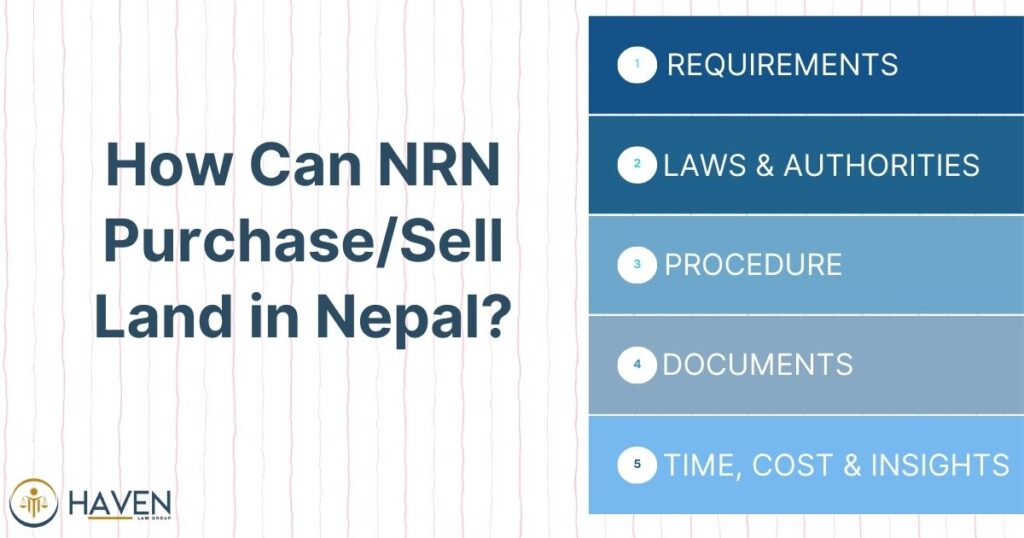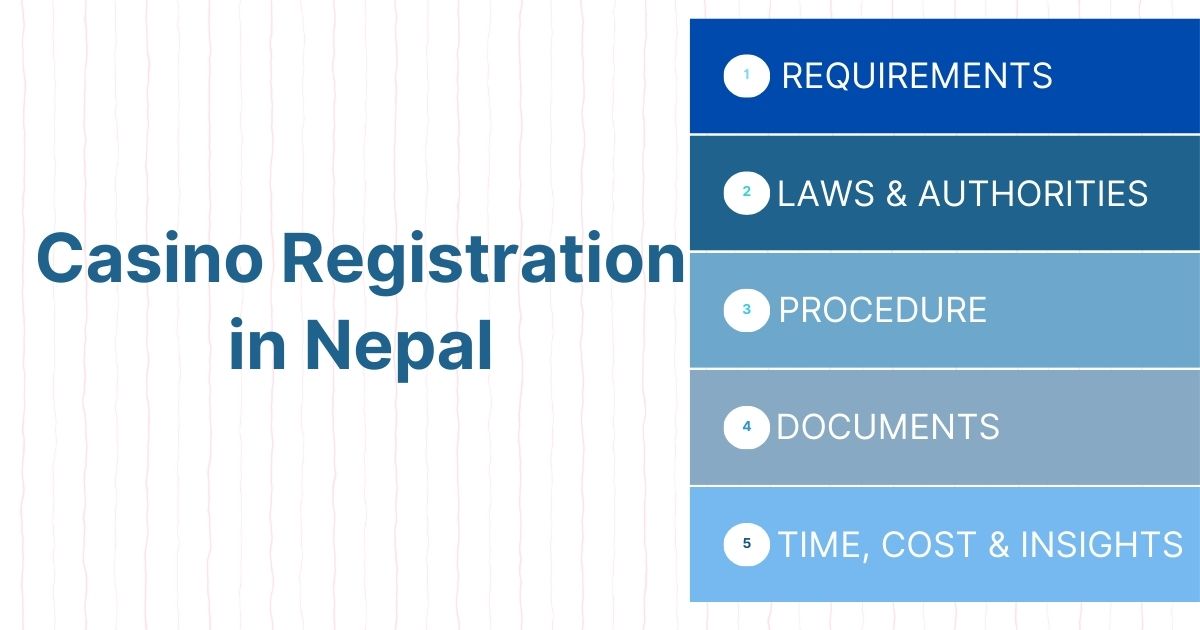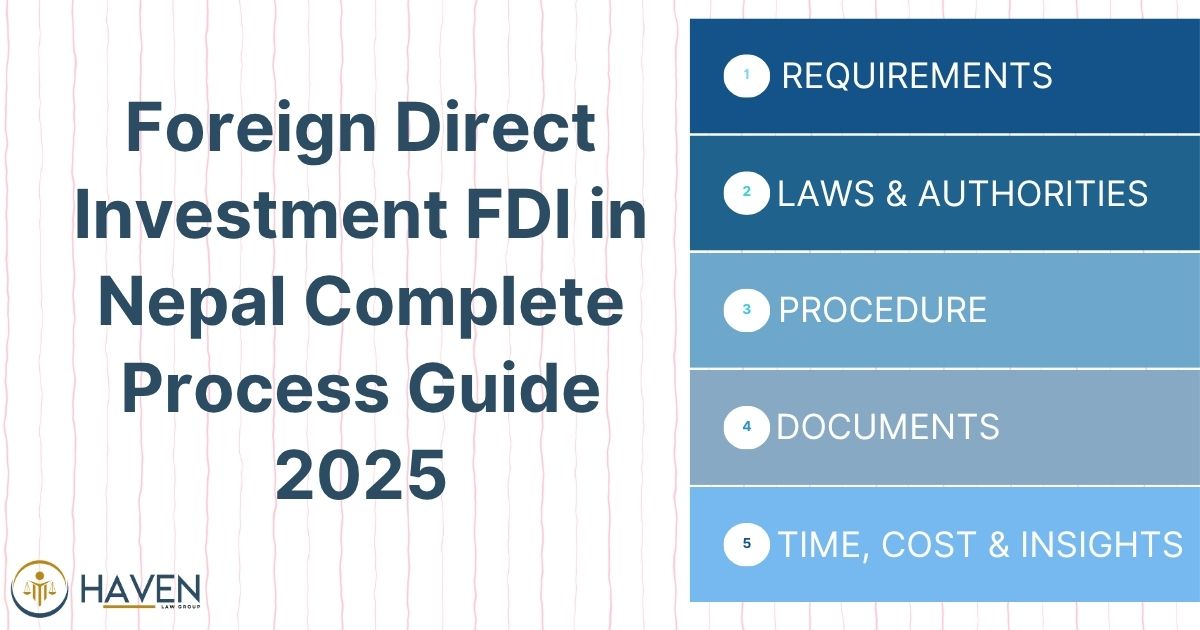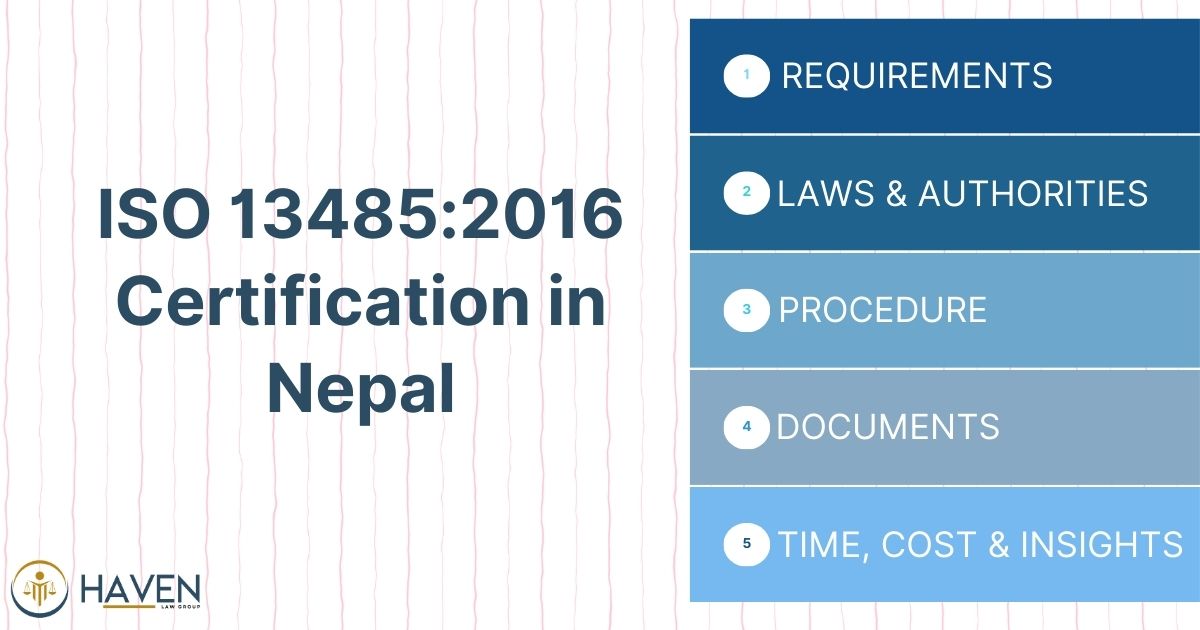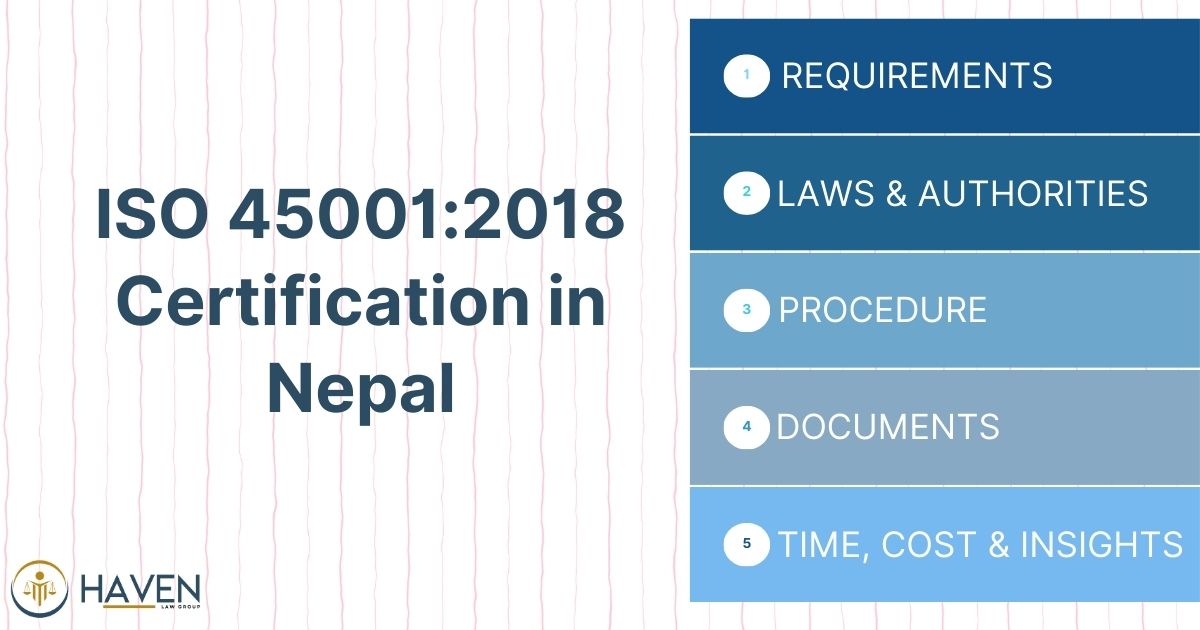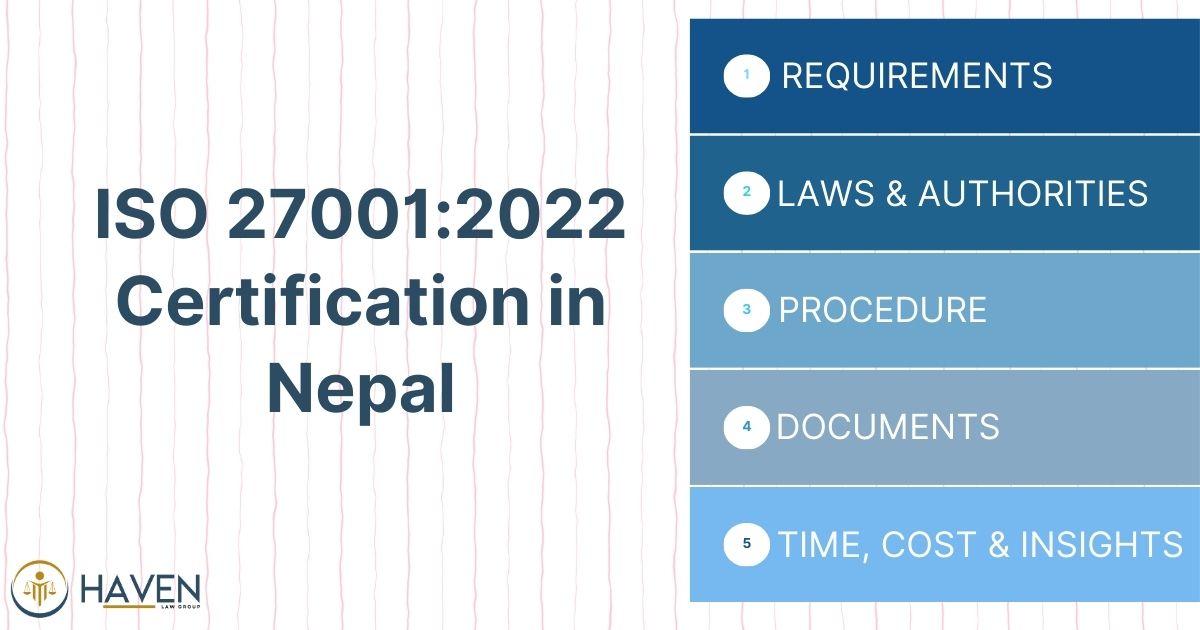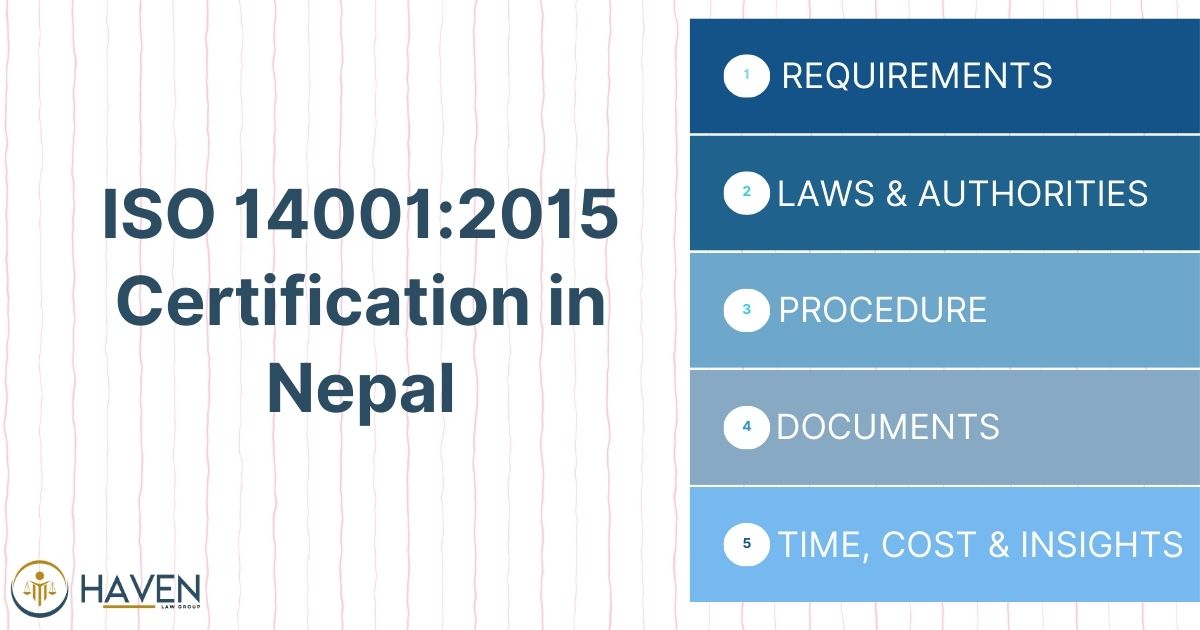Can NRNs legally buy land in Nepal?
Non-Resident Nepalis (NRN) can legally purchase land in Nepal. The Non-Resident Nepali Act, 2064 (2008) grants NRNs the right to acquire, own, sell, and transfer property in Nepal. This legislation aims to encourage investment and maintain connections with the Nepali diaspora. NRNs are defined as individuals of Nepali origin who have acquired foreign citizenship, excluding citizens of South Asian Association for Regional Cooperation (SAARC) countries.
The Act allows NRN to purchase land for residential, commercial, or industrial purposes, subject to certain conditions and regulations. However, NRN must comply with specific procedures and obtain necessary approvals from relevant authorities to ensure the legality of their land transactions in Nepal.
Are there restrictions on land ownership for NRNs?
While NRN can own land in Nepal, certain restrictions apply to their land ownership rights. The Non-Resident Nepali Act, 2064 (2008) and subsequent regulations outline these limitations:
- NRNs can own a maximum of 10 ropanis (5,476 square meters) of land in urban areas and 20 ropanis (10,952 square meters) in rural areas.
- Land ownership is restricted to residential, commercial, or industrial purposes.
- NRNs cannot purchase land in sensitive or restricted areas, such as border regions or areas designated for national security purposes.
- Agricultural land ownership is generally not permitted for NRNs, except in specific cases approved by the government.
- NRNs must obtain prior approval from the Nepal Rastra Bank for land transactions exceeding a certain value threshold.
- Land acquired by NRNs cannot be used for purposes other than those specified in the purchase agreement without government approval.
These restrictions aim to balance the rights of NRNs with national interests and land management policies.
What documents are needed for NRNs to purchase land?
NRNs must provide several documents to purchase land in Nepal:
- Valid passport and visa
- Non-Resident Nepali identity card
- Proof of NRN status (e.g., citizenship certificate of foreign country)
- Land ownership certificate of the seller
- Recent land survey map
- Tax clearance certificates
- Relationship certificate (if purchasing ancestral property)
- Recommendation letter from the Non-Resident Nepali Association
- Bank statement or proof of funds
- Power of attorney (if purchasing through a representative)
- Land valuation report
- Citizenship certificate of the seller
- Photographs of the buyer and seller
- Land revenue payment receipts
- Municipality/VDC recommendation letter
These documents ensure the legality and transparency of land transactions involving NRNs in Nepal.
Can NRNs sell inherited land in Nepal?
NRNs can sell inherited land in Nepal, subject to certain conditions and procedures. The Muluki Civil Code, 2074 (2017) and the Land Act, 2021 (1964) govern inheritance and land transfer rights. NRNs who have inherited land in Nepal must follow these steps to sell the property:
- Obtain a relationship certificate proving their connection to the deceased.
- Complete the inheritance transfer process at the local land revenue office.
- Acquire updated land ownership documents in their name.
- Obtain necessary clearances from relevant authorities.
- Pay applicable taxes and fees.
- Follow standard land sale procedures, including registration at the land revenue office.
NRNs must comply with regulations regarding foreign exchange and repatriation of funds when selling inherited land. It is advisable to consult with legal experts and relevant authorities to ensure compliance with all applicable laws and regulations.
Do NRNs need permission to purchase land?
NRNs require permission from various authorities to purchase land in Nepal:
- Non-Resident Nepali Association (NRNA): A recommendation letter from NRNA is necessary.
- Nepal Rastra Bank: Approval is required for transactions exceeding a specified value threshold.
- Department of Land Management and Archives: Permission is needed for land registration.
- Local government: A recommendation letter from the municipality or Village Development Committee (VDC) is required.
- Ministry of Land Management, Cooperatives and Poverty Alleviation: Approval may be necessary for certain types of land transactions.
The permission process ensures compliance with regulations and prevents unauthorized land acquisitions. NRNs must submit relevant documents and applications to these authorities before proceeding with land purchases. The approval process may take several weeks or months, depending on the complexity of the transaction and the efficiency of the concerned offices.
Are there limits on land area NRNs can own?
The Non-Resident Nepali Act, 2064 (2008) and related regulations impose limits on the land area NRNs can own in Nepal:
- Urban areas: Maximum of 10 ropanis (5,476 square meters)
- Rural areas: Maximum of 20 ropanis (10,952 square meters)
These limits apply to the total land area owned by an individual NRN, regardless of the number of separate plots. The restrictions aim to prevent land concentration and ensure equitable distribution of land resources. NRNs must adhere to these limits when purchasing or acquiring land through inheritance or other means. Exceeding these limits may result in legal consequences, including fines or forced sale of excess land. It is essential for NRNs to carefully consider these restrictions when planning land acquisitions in Nepal and consult with legal experts to ensure compliance with applicable regulations.
Can NRNs buy agricultural land in Nepal?
Generally, NRNs are not permitted to purchase agricultural land in Nepal. The Land Act, 2021 (1964) and the Non-Resident Nepali Act, 2064 (2008) restrict NRNs from owning agricultural land to protect domestic agriculture and food security. However, there are some exceptions:
- NRNs may acquire agricultural land through inheritance, subject to specific conditions.
- The government may grant special permission for NRNs to purchase agricultural land for specific projects or investments that benefit the national economy.
- NRNs can lease agricultural land for commercial farming or agro-based industries, subject to government approval.
To obtain agricultural land for commercial purposes, NRNs must:
- Submit a detailed project proposal to the Ministry of Agriculture and Livestock Development.
- Obtain approval from the Investment Board of Nepal for large-scale projects.
- Comply with environmental regulations and land use policies.
- Adhere to specific terms and conditions set by the government.
NRNs interested in agricultural investments should explore leasing options or seek expert advice on obtaining special permissions for land acquisition.
How are taxes applied to NRN land sales?
Taxes on NRN land sales in Nepal are governed by the Income Tax Act, 2058 (2002) and related regulations. The following taxes apply:
- Capital Gains Tax:
- 2.5% for land owned for more than 5 years
- 5% for land owned for less than 5 years
- Land Revenue Tax:
- Varies by location and land type
- Typically 4-6% of the property value
- Local Development Tax:
- 1.5% of the transaction value
- Registration Fee:
- 4-6% of the transaction value, depending on the location
- Value Added Tax (VAT):
- 13% on commercial property sales
NRNs must also consider:
- Withholding tax on rental income (if applicable)
- Wealth tax on high-value properties
- Repatriation tax on funds transferred abroad
Tax rates may vary based on factors such as property location, type, and duration of ownership. NRNs should consult with tax experts and relevant authorities to ensure compliance with current tax regulations and to explore potential tax exemptions or deductions available to them.
Can NRNs lease land instead of purchasing?
NRNs can lease land in Nepal as an alternative to purchasing. The Land Act, 2021 (1964) and the Contract Act, 2056 (2000) govern land leasing arrangements. Leasing offers several advantages for NRNs:
- Flexibility: Leasing allows for shorter-term commitments compared to purchasing.
- Lower initial costs: Leasing typically requires less upfront investment than buying land.
- Fewer restrictions: Some limitations on land ownership for NRNs may not apply to leases.
- Access to agricultural land: NRNs can lease agricultural land for commercial purposes, which they generally cannot purchase.
Key considerations for NRNs leasing land in Nepal:
- Lease duration: Maximum lease period is typically 50 years, renewable for another 25 years.
- Purpose: Clearly define the intended use of the leased land in the agreement.
- Registration: Long-term leases must be registered with the Land Revenue Office.
- Taxes: Lease income is subject to taxation, and NRNs must comply with tax regulations.
- Government approval: Certain leases, especially for large-scale projects, may require government approval.
NRNs should carefully review lease terms and consult legal experts to ensure compliance with Nepali laws and protection of their interests.
Is joint ownership allowed for NRNs?
Joint ownership of land is allowed for NRNs in Nepal, subject to certain conditions and regulations. The Non-Resident Nepali Act, 2064 (2008) and the Land Act, 2021 (1964) provide the legal framework for joint ownership arrangements involving NRNs. Key points to consider:
- NRNs can enter into joint ownership with:
- Other NRNs
- Nepali citizens
- Foreign investors (in specific cases)
- Joint ownership must comply with individual ownership limits for NRNs.
- All joint owners must meet eligibility criteria for land ownership in Nepal.
- Joint ownership agreements should clearly define:
- Ownership percentages
- Rights and responsibilities of each owner
- Dispute resolution mechanisms
- Procedures for transfer or sale of ownership shares
- Joint ownership arrangements must be registered with the Land Revenue Office.
- Special permissions may be required for joint ventures involving foreign investment.
- Tax implications and liabilities should be carefully considered and clearly stated in the agreement.
NRNs considering joint ownership should seek legal advice to ensure compliance with all relevant laws and to protect their interests in the joint ownership arrangement.
How to register land purchased by NRNs?
Registering land purchased by NRNs in Nepal involves several steps:
- Obtain necessary permissions and approvals from relevant authorities.
- Prepare required documents:
- Land ownership certificate of the seller
- Recent land survey map
- Tax clearance certificates
- NRN identity card and passport
- Purchase agreement
- Photographs of buyer and seller
- Land valuation report
- Visit the local Land Revenue Office with the seller.
- Submit all required documents and forms.
- Pay applicable registration fees and taxes.
- Obtain a token number and wait for document verification.
- Appear before the Land Revenue Officer for document verification and signatures.
- Receive the new land ownership certificate.
- Update records with the local municipality or VDC.
- Inform the Non-Resident Nepali Association about the land purchase.
NRNs should be prepared for potential delays and additional documentation requirements. It is advisable to seek assistance from a local legal expert or property agent to navigate the registration process efficiently and ensure compliance with all regulations.
Are there legal penalties for unregistered NRN land?
Unregistered land ownership by NRNs in Nepal can lead to severe legal consequences. The Land Revenue Act, 2034 (1978) and the Non-Resident Nepali Act, 2064 (2008) outline penalties for non-compliance:
- Fines: Substantial monetary penalties based on the land’s value and duration of non-registration.
- Invalidation: Unregistered land transactions may be deemed invalid, potentially resulting in loss of ownership rights.
- Legal action: Authorities may initiate legal proceedings against NRNs for violating land registration laws.
- Restrictions on future transactions: NRNs with unregistered land may face difficulties in future property dealings.
- Tax evasion charges: Failure to register land can be considered tax evasion, leading to additional penalties.
- Forced sale: In extreme cases, authorities may force the sale of unregistered land.
- Deportation: NRNs found in serious violation of land laws may face deportation and restrictions on future entry to Nepal.
To avoid these penalties, NRNs must:
- Register land purchases promptly
- Maintain up-to-date ownership records
- Comply with all reporting requirements
- Seek legal advice to ensure full compliance with Nepali land laws
Proper registration protects NRNs’ property rights and ensures legal recognition of their land ownership in Nepal.
FAQs
1. Is land taxed?
Yes, land in Nepal is subject to various taxes:
- Land Revenue Tax: Annual tax based on land value and location.
- Property Tax: Levied by local governments on land and buildings.
- Capital Gains Tax: Applied when selling land, ranging from 2.5% to 5%.
- Local Development Tax: 1.5% of the transaction value during sale.
- Registration Fee: 4-6% of the transaction value when registering land.
Tax rates may vary depending on factors such as land type, location, and usage. NRNs should consult with local tax authorities or financial advisors to understand their specific tax obligations related to land ownership in Nepal.
2. Can NRNs mortgage land?
NRNs can mortgage land in Nepal, subject to certain conditions:
- The land must be legally owned and registered in the NRN’s name.
- Mortgages must be registered with the Land Revenue Office.
- NRNs can mortgage land to Nepali banks and financial institutions.
- Foreign banks or lenders generally cannot hold mortgages on Nepali land.
- The purpose of the mortgage must comply with Nepali laws and regulations.
- NRNs must adhere to foreign exchange regulations when obtaining loans.
It is advisable for NRNs to consult with legal experts and financial institutions in Nepal to understand the specific requirements and implications of mortgaging land as a non-resident.
3. Are property deeds required?
Yes, property deeds are required for land ownership in Nepal. Key points regarding property deeds:
- The main property deed is called “Lalpurja” (red booklet) in Nepal.
- It serves as the official proof of land ownership.
- The deed contains details such as plot number, area, and owner’s information.
- Property deeds are issued by the Land Revenue Office.
- NRNs must obtain a valid property deed when purchasing land.
- Deeds must be updated when ownership changes or land is subdivided.
- Copies of property deeds should be kept safely, with originals stored securely.
NRNs should carefully verify the authenticity and accuracy of property deeds before completing any land transactions in Nepal.
4. Can land be transferred easily?
Land transfer in Nepal involves several steps and can be complex, especially for NRNs:
- Obtain necessary permissions from relevant authorities.
- Prepare required documents, including ownership certificates and tax clearances.
- Conduct due diligence on the property’s legal status.
- Draft and execute a sale agreement.
- Pay applicable taxes and fees.
- Register the transfer at the Land Revenue Office.
- Update records with local authorities.
Factors affecting ease of transfer:
- Clear ownership history
- Compliance with zoning and land use regulations
- Timely tax payments
- Absence of legal disputes or encumbrances
NRNs should seek assistance from legal experts to navigate the land transfer process efficiently and ensure compliance with all relevant laws and regulations.
5. Is resale restricted?
Resale of land by NRNs in Nepal is subject to certain restrictions:
- Minimum holding period: NRNs may be required to hold the property for a specified period before reselling.
- Purpose compliance: The resale must align with the original purpose of land acquisition.
- Government approval: Certain resales may require approval from relevant authorities.
- Tax implications: Capital gains tax and other applicable taxes must be paid.
- Foreign exchange regulations: NRNs must comply with rules regarding repatriation of sale proceeds.
- Buyer eligibility: The new buyer must be eligible to own the specific type of land.
- Land use restrictions: Resale must adhere to zoning and land use regulations.
NRNs planning to resell land should consult with legal experts to understand the specific restrictions and requirements applicable to their situation. Compliance with all regulations is essential to ensure a smooth and legal resale process.
Can Non-Resident Nepali (NRN) purchase land in Nepal?
Yes, Non-Resident Nepalis can purchase land in Nepal, subject to certain conditions and restrictions outlined in Nepali law.
What type of land can an NRN buy in Nepal?
NRNs can buy residential and commercial land in urban areas. Rural agricultural land purchase is generally not permitted.
Is there a land ownership limit for NRNs in Nepal?
Yes, NRNs are limited to purchasing up to 10 ropanis (about 5,476 square meters) of land in Nepal.
What documents are required for an NRN to buy land in Nepal?
Required documents include NRN Identity Card, passport, citizenship certificate, and proof of income. Local land office may request additional papers.
Can NRNs take loans from Nepali banks to purchase land?
Yes, NRNs can obtain loans from Nepali banks for land purchase, provided they meet the bank’s eligibility criteria.
Are there any taxes or fees NRNs must pay while purchasing land?
NRNs must pay standard land registration fees and capital gains tax. Additional charges may apply depending on the location and transaction.
Can NRNs sell land they have purchased in Nepal?
Yes, NRNs can sell land they have purchased in Nepal, following the same procedures as resident Nepalis.
What is the role of the NRN Identity Card in land purchase?
The NRN Identity Card serves as proof of NRN status, facilitating land purchase and other transactions in Nepal.
Can NRNs lease their land or use it for commercial purposes?
NRNs can lease their land and use it for commercial purposes, adhering to local zoning laws and regulations.

